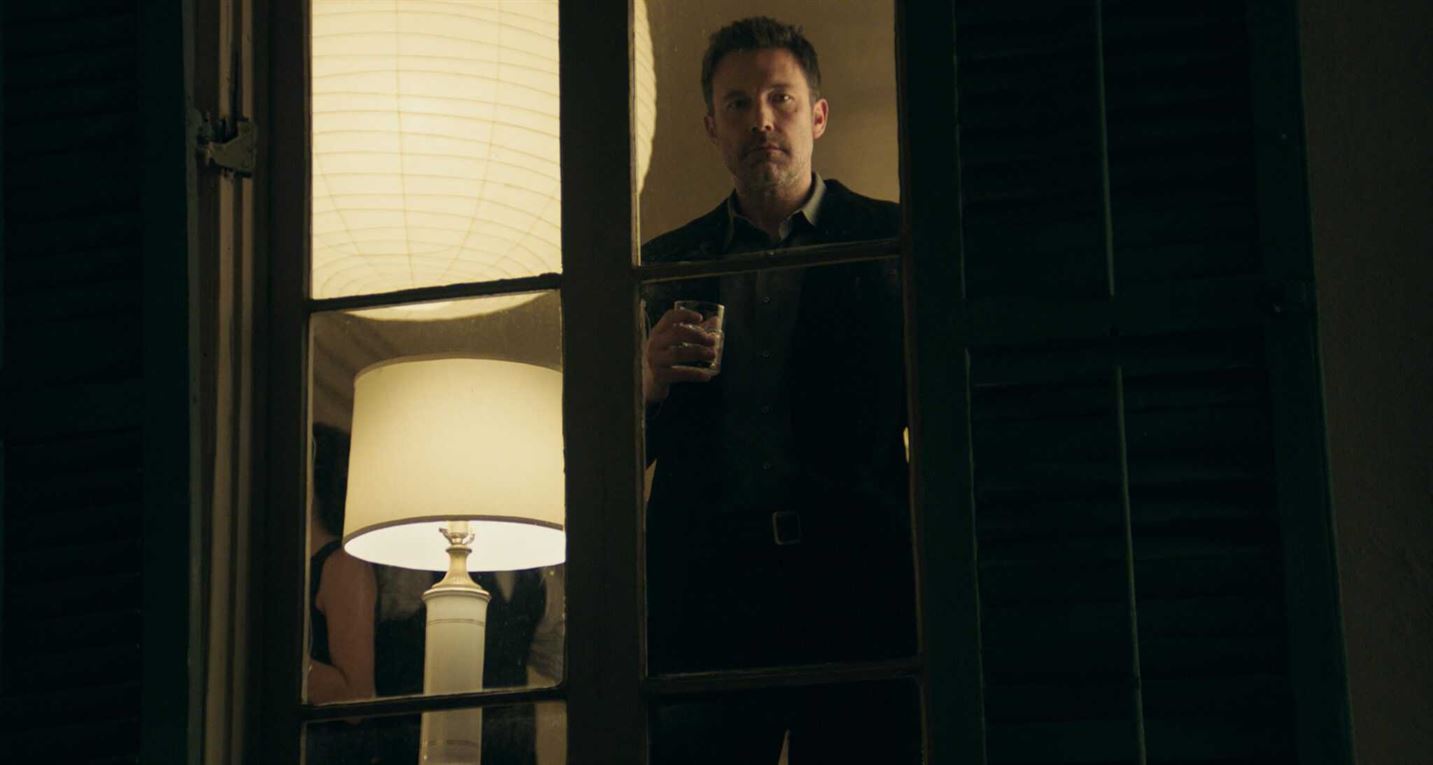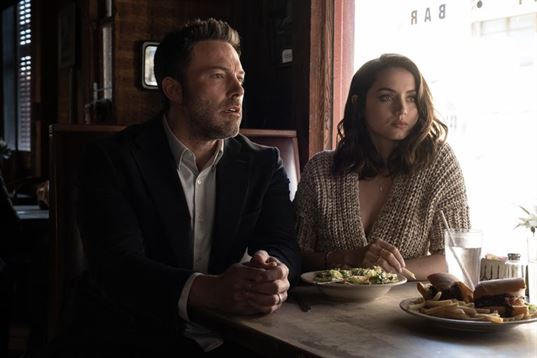Despite an iffy film description that made my skin crawl, my love for Ana de Armas and psychological thrillers encouraged me to be open-minded and not judge a book by its cover. What I did not expect was for the book to smack me in the face.
Director Adrian Lyne made his first comeback to the big screen since “Unfaithful” (2002), with “Deep Water,” a Hulu Original and adaptation of the 1957 book by Patricia Highsmith with the same name. The title takes place in the 1950s and exposes the terrors of American suburban life. Because, of course, heterosexual couples entering a union in which neither is like the other is such an out-of-this-world concept.
Meet Melinda (de Armas) and Vic Van Allen (Ben Affleck) — therapists’ biggest dreams and family lawyers’ worst nightmares.

Vic Van Allen (Ben Affleck) is a retired robotics engineer and father during the day, but a serial killer by night.
Photo courtesy of 20th Century Studios
The film shows the Van Allens navigating their social group of equally rich friends as it is made clear that Vic is not the only man in Melinda’s life. Their open marriage is not a secret amongst their friends either. Melinda grows close to her latest conquest, and Vic gets increasingly jealous, telling him he murdered Melinda’s previous boyfriend who had disappeared under mysterious circumstances.
The story circles around town, raising questions as to the story’s truth. When Melinda’s next lover is found dead at a pool party, she accuses Vic of the murder. This raises growing suspicions by their new friend, a writer named Don Wilson (Tracy Letts).

Charlie De Lisle (Jacob Elordi), a piano teacher, is one of Melinda’s many lovers.
Photo courtesy of 20th Century Studios
Overall, “Deep Water” promotes a disgustingly toxic relationship in which the ethnically ambiguous foreign woman is panned out to be promiscuous and wild as the majority of their white elitist rich friends all agree the white man is the victim.
However, anyone that bothered to read the “Deep Water” synopsis knows Melinda is allowed to do this because of her agreement with Vic in which she can see other men as long as she doesn’t abandon her family. But at no point during the development of the plot is this agreement stated. Trixie (Grace Jenkins), the couple’s daughter, is always left as a second priority when Vic starts killing Melinda’s lovers left and right, making this supposed contract between them useless.

Vic and Melinda Van Allen struck up a contract to preserve their family, which the film fails to address.
Photo courtesy of 20th Century Studios
Despite this, I have no complaints about the cinematography and acting. The movie is beautifully shot, and de Armas and Affleck work decently together and did what they could with what they were given. However, it’s quite sad that more couldn’t be done with both Affleck’s and de Armas’ characters.
On one hand, Affleck’s Vic scarily embodies Nick Dunne from “Gone Girl” turned psychotic killer. He’s at fault for finding himself in this predicament, as his obsession with owning Melinda is more important than the love he supposedly has for his family.
Similarly, Melinda has no character motivations other than making her husband jealous and burning through his hefty bank account. She seems bored with her life, like the only character trait she has is depending on men for her happiness.
Melinda and Vic constantly play this game of cat and mouse where they just traumatize each other and their poor child. Affleck and de Armas’ chemistry is underwhelming as I tried to reduce myself to nothing to no avail, being stuck in an infinite vicious circle of suffering and pain at the hands of straight people. Someone, please call child protective services on the Van Allens.
A film should be enjoyable to watch, and even if you don’t agree with certain creative choices, you can appreciate it for what it attempted to do. Sadly, “Deep Water” is exhausting to watch, like walking with an annoying headache all day after failing to find a painkiller.
For a film called “Deep Water,” it sure was the most shallow cinematic experience I’ve had thus far. As for my criticism of the plot, I don’t mean to bash the author because, truthfully, I have not read the book that inspired this catastrophe.
Everyone knows adaptations can change the original plotline; that’s why entertainment giants buy rights to a book in the first place. You can more or less do whatever you want with it. If the book was anything like this, have mercy on whatever abusive trope with a nauseating, bad plotline shall befall us next.



